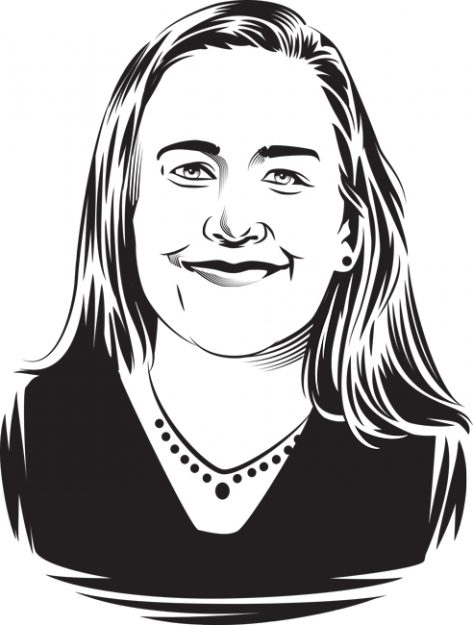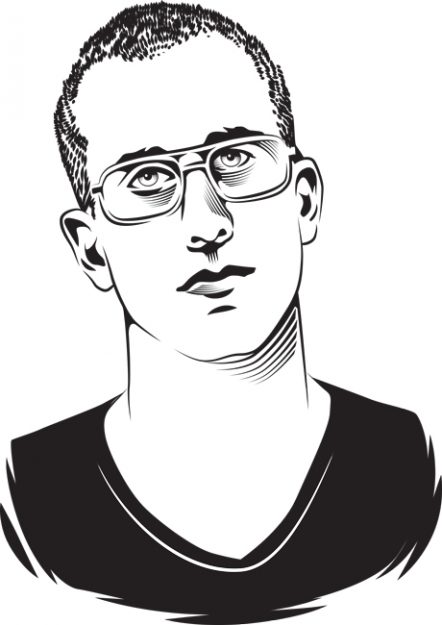Body, speech, and mind in the Buddhist tradition, are often considered as three of our fundamental fields of experience and cultivation. They are aspects of awakening and so are also called the three bodies of Buddha; but, we can equally consider them as aspects of continuity. So there is our continuity as body: things taking physical form in incalculable proliferations of worlds and universes. There is continuity as mind, which is luminous, empty awareness, awareness beyond the limits of form, time, conceptualization. And then, in between, as it were, we have continuity as speech. This is language in the broadest and deepest sense: communicating and the desire to communicate, and our joy in doing so.
Letters from Max: A Book of Friendship is an account of the author Sarah Ruhl’s deep, poignant, and sustaining friendship with the young poet Max Ritvo. Max did not live long, but in that time he and Sarah developed an extraordinary bond. This book consists of their correspondence and Ruhl’s commentary, and it is an offering of love, commitment, and inspiration. It is also the story of two people whose lives are focused within the domain of speech and a passion for communication. They meet in the world of words, and the deep connection that evolves is inseparable from the ways in which they articulate, explore, and communicate their outer and inner lives.
Related: A Watchfulness Routine for Writing
Sarah Ruhl is a well-known and widely admired playwright. Her plays, including Eurydice, The Clean House, and In the Next Room, have been performed throughout the US and Europe. John Lahr observed in The New Yorker, “her plays are bold,” and he wrote of “her nonlinear form of realism—full of astonishments, surprises, and mysteries.” She has been nominated twice for the Pulitzer Prize, and has been the recipient of a MacArthur Fellowship, the Laura Pels International Foundation Theater Award, and the Steinberg Distinguished Playwright Award. She has written essays on a wide range of topics and teaches at Yale School of Drama. Max Ritvo was a young poet who would, before his short life ended, write extraordinary poems and have a considerable impact on the poetry world.
Letters from Max: A Book of Friendship
Milkweed Editions, September 2018. 336 pp., $26, cloth
Sarah met Max in the fall of his senior year at Yale, after he had applied for a place in her playwriting class. At the conclusion of the application in which he described his involvement with poetry, he said: “All I want to do is write.” His lack of any playwriting experience almost led Sarah not to accept him. She later wondered what “strange parallel universe” she would have inhabited if she had not changed her mind.
Soon after her first meeting with Max, his schedule of medical treatments obliged him to explain that he had had cancer since he was 16, and although he had been in remission, that might no longer be the case. He would occasionally have to miss certain classes. Soon began the decorous and deep unfolding intimacy of mind and heart that is the subject of this book. Max was assiduous in attending class, participating, working to write a play. But when cancer laid hands on him, this was not possible. When Sarah’s schedule and family life permitted, she would visit him in the clinics and hospitals during his treatments.
In the contemporary American landscape, cancer is a vast, half-hidden domain. (According to a 2018 report for the President’s Cancer Panel, approximately 41 percent of Americans will be diagnosed with cancer during their lifetime and about 21 percent will die from cancer.) Whether this realm of illness, with its poison cures, radiation beams, and radical surgeries, has been triggered by the array of chemicals in our polluted environment, none can or will say. (The same report states that this question has been given a low priority for investigation and funding.) It is a world where aberrant internal biological forms invade the body and proliferate, but they also find a place in their own specially designated buildings, meet their own specialist doctors, nurses, technicians, researchers, are spoken of in their own language. Here is a special delineation of the body’s geography, a unique pictorial language of scans, a calculated placement in high-risk protocols, the statistical arcana of fatal prognostication.
The nonnegotiable brutality of cancer and its logic did not allow Max to take for granted the safe regularity of academia or to languish in the short-breathed excitement of the literary world. Instead, he was impelled to throw himself into life with outlandish glee, determination, and astonishing generosity.
Max and Sarah’s friendship evolved in visits and correspondence: in their first two letters, they had found an informality and ease. He dreamed of becoming a poet. As his cancer returned and he moved toward surgery, their conversations “about art and life,” as she wrote, “took on a new urgency, and our correspondence began in earnest.”
From Max, in the hospital: “I’m clinging more and more to my writing as my panic is increasing.”
Sarah: “I want you to write in any way that makes sense to you.”
Max: “Everything in my life, the fabric of my life itself, is dissolving. You are not. Maybe I am not?”
Sarah to Max (a poem):
Health does not belong to literature.
I wish it did.
Max is a poet.
Max is a poem.
We all become poems
in the end.
Max graduated, got into the writing program at Columbia, and became a rising star in the New York poetry world. Even with the demands of their separate careers, the two grew closer. Sarah commented on a reading he gave at the 13th Street Repertory Theatre in New York, alongside “luminaries like Jean Valentine. At this time Max was full of brio, and hope. The tumors appeared to be stable. He had a book coming out and a wedding to plan. Max’s readings were extraordinary. . . . he would rotate, wearing his pink kimono while declaiming poetry, arms outstretched, including everyone in his luminous pink gaze.”
Within a few years, Max’s cancer returned in force, and he was subjected to new rounds of experimental chemotherapy. Nonetheless, he pressed on, graduating from Columbia and working to complete another book of poetry. He and Sarah discussed writing their letters in a way that might be suitable for a book.

A playwright, essayist, and professor at the Yale School of Drama, Sarah Ruhl has received multiple awards for her work, including two nominations for the Pulitzer Prize (Portrait Illustration by Yann Legendre).
Sarah to Max on his poetry: “I think you are bringing us along where poetry needs to go, away from the small and confessional into a big world, the world of death, love, and metaphysics. . . . How lucky I am that I met you and you made me love poetry again.
Max: “Humans are expensive to nature, I’m realizing. Wherever we go we replace nature with art.”
Sarah: “Beauty always giving rise to the desire to replicate.”
Max (as his condition deteriorated): “My equanimity just has to be forbearance and forgiveness every two or three seconds for the condition I find myself in.”
Sarah: “I have an aspiration to be one person in your life whom you do not have to comfort through your illness. So don’t worry if I cry in a dream or otherwise. The main thing is you.”
In 2016, Max weakened as new cancers and new treatments sapped his strength. He wrote Sarah of his fear. She replied: “I do not believe you are only carrying a torch of fear into the night with you. You might think you are carrying a torch of fear, Max, but what I see you holding is a torch of incredible luminosity, bravery, generosity to all those around you, and metaphysical HEART. Big, big, big! Good, good, good! Bright, bright, bright! Illuminating the way in front of you and imparting light to the people you love.”
Max: “What if the soul is no more than the success with which we envision one another? What if you make me and I make you, and we need each other to make each other? …We’ll know one another forever, however long ever is. And that’s all I want—is to know you forever.” Around that time, he began writing at an ever greater pace:
. . . and my chest slit with gills
for the new thing
taking over.
I abandoned my mind’s garden . . .
It stirs, I bleed. A lesson:
Pain is just panic sitting still a moment.
As my blood pours
it moves the air.
–“Self Portrait as Jesus”
Sarah wanted to assemble as many of their letters as possible. Max wanted a short volume organized by topic. He had a horror of a “poor cancer boy and his wise, loving mentor” book. He wrote and apologized for imposing his earlier poems on her; he called them “Barf.” And she replied: “I would not have judged your writing in that way, Max. It was you! Not words. I saw YOU, Max!”

Writing by Max Ritvo (1990–2016) was published posthumously by Milkweed Editions in Four Reincarnations, Letters to Max, and The Final Voicemails. Ritvo earned his MFA in Poetry at Columbia University’s
School of the Arts (Portrait Illustration by Yann Legendre).
Their letters became much longer and involved with speculation about life, death, meaning, writing, reincarnation, soul, Buddhism, belief, doctrines. Max concluded this interchange: “All spirituality asks is that we put ourselves in situations that feel holy. That take our breath away and make us go: I can’t believe my luck to be part of something as beautiful as life.”
Max from “The Final Voicemails”:
I know you’ve been waiting for disintegration,
but it just doesn’t seem to be coming
…
but these mild passions, all surface,
keep erupting now
like acne—or like those berries on a bush.
Don’t ask me to name them—
I’ve never been that kind of guy.
Red berries—sour, sticky.
If you really want to know,
come here, just try them.
Red as earth,
red as a dying berry
red as your lips,
red as the last thing I saw
and whatever next thing I will see.
Max wrote an introduction to their book (what became this book, actually, where Sarah placed it near the end). It is a paean to Sarah and to their friendship. It concludes: “we talked in person, on the phone, and through our letters, and became friends in the deep sense of You Are Not Alone. And we discussed True Love and The Afterlife. And we never figured anything out. And that was what there was to figure out, And now, if I ever hug you, it is Sarah hugging you.”
In his last email to her, Max wrote:
Death doesn’t seem soon
It seems now
…
the book is written
that’s the part that actually means life
happened.
He died soon after. The day before, he had asked his mother: “Do you think I’ve fought hard enough?”
In their correspondence, Max and Sarah often looked at a Buddhist context for life and art. They reached no conclusions about how this might work. Of course, how enlightenment is alive within our ordinary life is an enduring question. Sarah had taken refuge with a nun in the Tibetan Buddhist tradition. Max was very taken with Zen and wrote a lovely and intriguing essay on the poet and Zen priest Philip Whalen. Whalen’s teacher, Suzuki Roshi, once remarked: “I don’t know so much if there are enlightened beings, but I know there are enlightened moments.”
Here, also from a renowned Zen master, Joshu Sasaki Roshi, is another glimpse of how the awakened state may be present in ways not clearly delineated in doctrine.
A longtime student of Sasaki Roshi’s suddenly left for an Indian teacher far less well-known. “What will happen to him?” asked a fellow student.
“Oh,” Roshi replied, “I don’t think he’ll find true love.”
I thought this was a remarkable formulation, but the person who told me the story said:
“Oh, he says that sometimes when he means enlightenment.”
“True love?”
“Yes.”
Thank you for subscribing to Tricycle! As a nonprofit, we depend on readers like you to keep Buddhist teachings and practices widely available.
